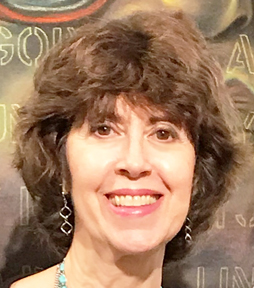
Maya Angelou at Clinton inauguration
(Image by (From Wikimedia) Staff photographer, Author: Staff photographer) Details Source DMCA
As Americans struggle to deal with the divisiveness and polarity within our country, the presentation of the documentary Maya Angelou: And Still I Rise on PBS American Masters was a welcome respite. Through the use of archival footage and interviews with Angelou -- and commentary from those who knew her -- a portrait of her fierce courage and individuality is drawn. Angelou's dedication to speaking her truth stands as an example of her personal integrity.
In a life spanning eighty-six years (1928-2014), Angelo witnessed and was impacted by the Jim Crow mindset of the 20thcentury South.
Angelou's parents, a World War I veteran and a "bright and courageous woman," sent her and her brother Bailey to live with their paternal grandmother after the breakup of their marriage. The separation left Angelou with tremendous loss and feelings of rejection. However, a protective Bailey and Grandmother Henderson (a child of former slaves), were solid presences in her life. Her grandmother owned both a local store and property in Stamps, Arkansas. The extended family household included a disabled uncle.
Angelou relates stories of life in Stamps that are hair-raising. "I was terribly hurt in this town," she recounts. Angelou describes the "loathing" with which white people would look at her. She also vividly depicts the imagery of horse-mounted Klu Klux Klansmen, as they appeared over the hill, riding toward her house. They would hide her uncle in the potato bin -- covered with wood slats, spuds, and onions.
The "pain of growing up as a black girl in the South" would give form to much of Angelou's narratives. "When I reached for the pen to write, I have to scrape it against those scars," she said. It was her vivid use of language to express intense personal anguish that resonated so deeply with others.
The pivotal experience that shaped Angelou's life occurred when she and her brother went back to live with their mother in St. Louis. At the age of seven, her mother's boyfriend raped her. She told her brother about the incident, and the boyfriend went briefly to jail. Soon after, he was found kicked to death. Angelou recalls, "I had to stop talking. I knew my voice could kill people."
Her mother returned the children to Stamps. Angelou began to heal under the watchful eye and nurturing care of the grandmother who always believed in her.
During the next five years, Angelou went mute. She also read everything she could get her hands on, memorizing texts, including Shakespeare. Angelou notes, "When I decided to speak, I had a lot to say."
(Note: You can view every article as one long page if you sign up as an Advocate Member, or higher).





